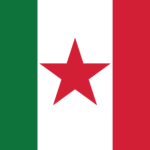Nepali Government to Hold Local Elections on May 14
 The Nepali government announced on February 20 that it will hold local elections for the first time in 20 years.
The Nepali government announced on February 20 that it will hold local elections for the first time in 20 years.
The Nepali government publicized their decision to hold elections on May 14 during a cabinet meeting overseen by Prime Minister Pushpa Kamal Dahal (also known as Prachanda). Nepali Forest Minister Shankar Bandari claimed that local elections will be held in more than 700 villages, allowing state and national elections to take place later during the year.
The Nepali government said it hopes that local elections will allow for a smoother transition to democracy. From 1996 to 2006, Maoist rebels fought against the Nepali monarchy, which existed for 240 years. The war left 17,000 dead. In 2008, Nepal was declared a republic.
Prachanda, a former Maoist leader, claimed, “Elections are necessary to take the peace process to a logical conclusion and end an important chapter of the political transition.”
The Madhesis, an ethnic minority group who live in the Terai Plains in southern Nepal near the Indian border, oppose the decision to hold elections. Madhesis comprise approximately one-third of the Nepali population and have long felt oppressed by northern Nepalis. They believe that the local boundaries delineated in the Nepali constitution must be changed before the government can hold elections.
Chairman of a Madhesi political party Mahindra Yadav told AFP, "We will not take part in the local level election without our demands being addressed.”
In September 2015, the Nepali government adopted a new constitution after failure to implement their previous one. Madhesi protesters blockaded the India-Nepal border for several months, as they believed that federal borders created by the constitution led to under-representation in national parliament. The strike led to widespread shortages.
A current potential amendment in parliament proposes that regional boundaries should be withdrawn. However, some political leaders have urged parliament to withdraw the amendment.
The last local elections took place in 1997, with those elected serving for five years. After their terms ended in 2002, no new elections were held.
Activists from the
(SLMM- known as United Democratic Madhesi Front or UDMF in English), a coalition of Madhesi political parties, protested the announcement of local elections on February 21. They burned tires during the day and held torch rallies in the evening in several Nepali districts.
More recently, Madhesi leaders threatened to rescind support for the current government.
The decision to hold elections, while a big step, will likely continue to be fraught with tension.
